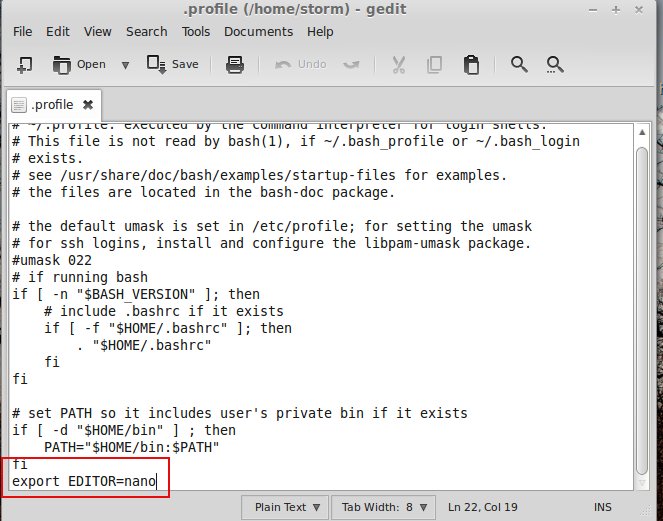问题描述
当我使用 ipython 或 ipython3 时,我可以使用 %edit 命令打开一个编辑器来编写我的 python 脚本。我的问题是默认编辑器是 vim,我真的不知道如何使用该编辑器。我想做的是将编辑器更改为 nano 或 gedit。我想留在终端上,我更愿意将其更改为 nano 编辑器。
当我在 ipython 终端中输入 ‘edit?’ 命令时,它会说:
%edit runs IPython’s editor hook. The default version of this hook is set to call the editor specified by your $EDITOR environment variable. If this isn’t found, it will default to vi under Linux/Unix and to notepad under Windows. See the end of this docstring for how to change the editor hook.
然后,当我看到那个文档字符串的结尾时,我看到了这个:
Changing the default editor hook:
If you wish to write your own editor hook, you can put it in a configuration file which you load at startup time. The default hook is defined in the IPython.core.hooks module, and you can use that as a starting example for further modifications. That file also has general instructions on how to set a new hook for use once you’ve defined it.
很抱歉成为这样的新手,但我在这里迷路了。我不确定如何访问 IPython.core.hooks 模块,或者只是将环境变量 $EDITOR 设置为 nano。
有什么建议么?
最佳方法
您可以使用以下命令设置 $EDITOR 变量:
export EDITOR="/usr/bin/nano"
这将为当前会话定义变量 EDITOR 并将其传递到其所有子进程的环境中。要永久设置它,您必须在系统配置文件之一中定义它。您可以执行此操作的最高级别是将其设置在 /etc/environment 中。这在全球范围内定义了它:
PATH="/usr/local/sbin:/usr/local/bin:/usr/sbin:/usr/bin:/sbin:/bin:/usr/games:/usr/local/games"
EDITOR="/usr/bin/nano"
检查是否定义了变量:
$ echo $EDITOR
/usr/bin/nano
编者注:通常最好将环境变量放在您自己的 ~/.profile 中,如果出现问题,这更容易修复。
次佳方法
添加行
export EDITOR=nano
到您的 ~/.profile 和 ~/.bashrc 如下图所示。不要在 nano 周围加上引号

然后运行
source ~/.profile
source ~/.bashrc
在修改 .profile 和 .bashrc 后的提示下,使修改生效。

现在 ipython 中的 %edit 将打开 nano 。
将为 interactive + non-loginshell 调用 ~/.bashrc
而 ~/.profile 将为 interactive + login shell 调用
在您的情况下,只需将其添加到 ~/.bashrc 而不是 ~/.profile 就足够了。
